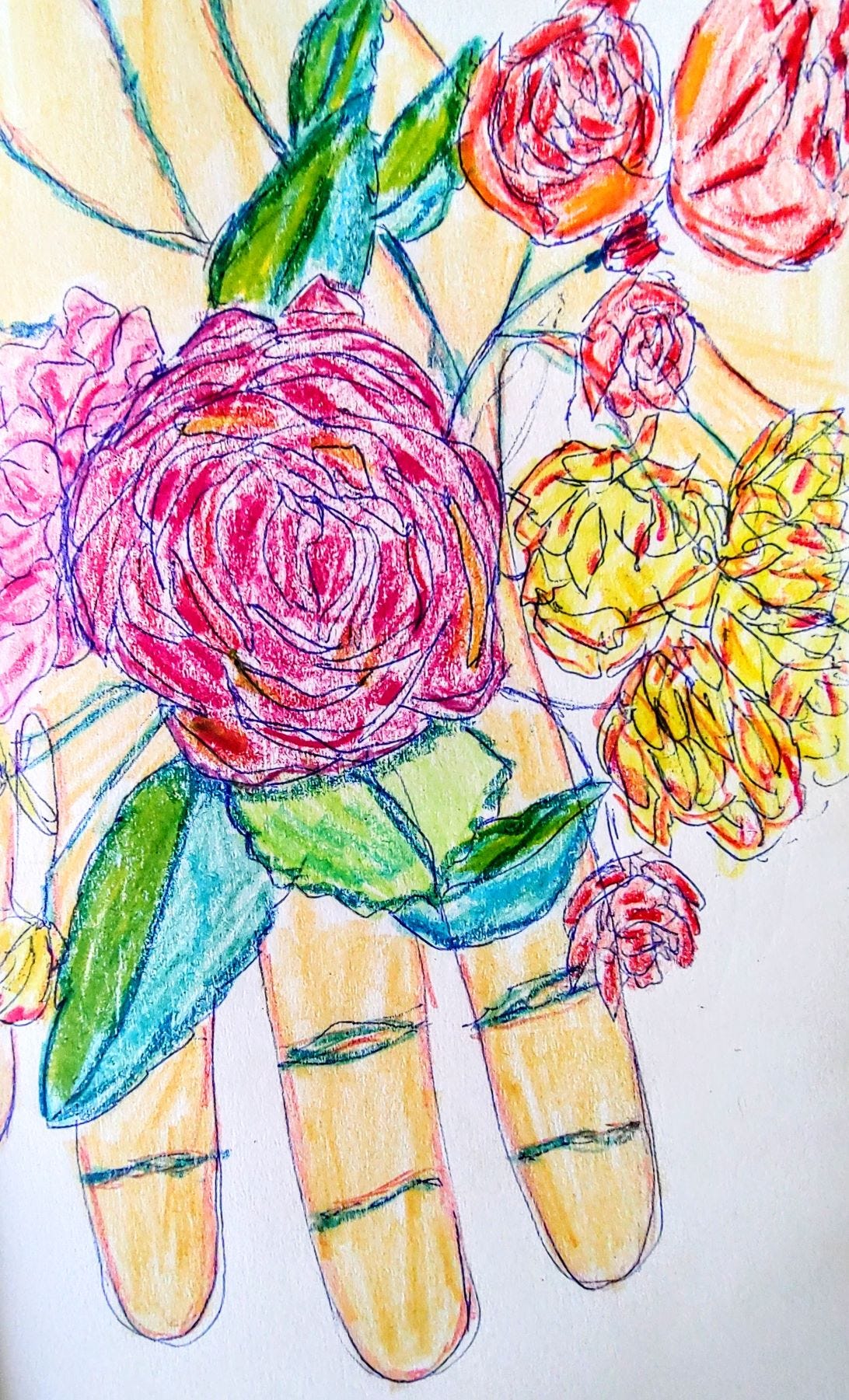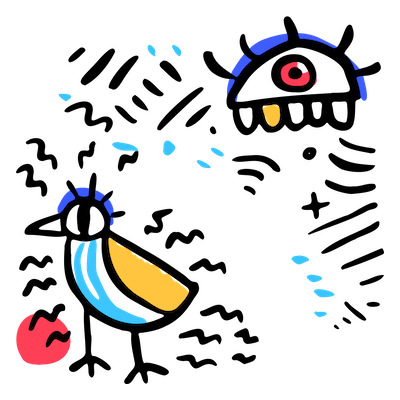The Bridge #75 [Beant D]
in which we hear from a special guest, desperate for wisdom

Hello
Today we hear from a special guest: Beant Kaur Dhillon, a friend and a UX professional exploring other ways of being, through her newsletter AltUXR and otherwise. I am very grateful for this creative collaboration we have to share with you today.
Let’s hear from her:
Something to Say
I am in a café. It feels muggy, humid and warm-ish. I can hear plates clattering, people chatting, laughing, others dragging chairs around. My shoulder blades hurt, and my butt is sore – probably from that yin yoga class I did the other day.
I desperately want to sound wise and say something meaningful here, but I feel defeated by the irritating pain.
If only I could get back to serenity. Surely all the journaling, yoga, meditation, introspection, therapy I do should have solved this for me by now.
And yet. . .
As I write,
a small space opens up in my mind, and a thought comes through: Wanting to evade discomfort, this feeling is familiar. It has happened before.
I start breathing a bit easier. If I have experienced this feeling before, it means I survived it already at least once 😀 and I can do it again.
Something to Hear
There is a song I’ve been listening to on repeat lately – Challa* . It is an old Punjabi folk song – no one knows how old – and eventually in the 1920s it was formally written down.
Challa has many versions, like most punjabi folk songs, where a refrain and the rhythm may stay the same, but the couplets, the mood and the meaning of the song may change based on the singer. I like how this makes punjabi folk songs feel familiar and yet ever evolving.
The version of Challa I am listening to starts with,
“Challa vas nahin mere”... meaning “Challa, I feel powerless. . .” As soon as I heard that line just now, I laughed – this describes the current moment perfectly, a moment when I feel unable to summon up any sort of wisdom.
I am laughing and also feeling pain, powerlessness and clarity, all in this one moment and all of this is me. The same is true for this song which can mean many things in all its versions or within the same version, and yet it is immediately recognizable as Challa – the song itself.
* For those interested in learning more the history and meaning of the song, click here
Something to Consider
A book that changed something within me — Radical Acceptance: Embracing Your Life With the Heart of a Buddha by Tara Brach — contains some wisdom that I would like to contemplate again because it was so profound. The author Tara is a clinical psychologist, a teacher of Buddhist meditation for 40+ years, and the founder of a meditation community in Washington. This is how she defines Radical Acceptance,
"It means feeling sorrow or pain without resisting. It means feeling desire or dislike for someone or something without judging ourselves for the feeling or being driven to act on it.
…If we are holding back from any part of our experience, if our heart shuts out any part of who we are and what we feel, we are fueling the fears and feelings of separation that sustain the trance of unworthiness."
Tara then moves to questions to help us reflect on ways we judge ourselves or negate our experiences. And how this lack of acceptance or a feeling of "unworthiness" can create suffering, pain, and fear. And how acceptance, compassion, and forgiveness for ourselves and others is the path to embracing life with heart.
I have tried out exercises suggested in the book, and it transformed my world and how I want to live my life. So grateful!
Something to Practice
This song, this book, and my experience writing this article at a café have all been reminding me that life is in the here and now. Life is asking me to be present during painful or difficult times, not running away, staying with the feelings without judgment. And when I am kind and open to my own shortcomings, I am able to be kind and open towards others.
I want to close with some of my favorite translated lines from the song where the singer talks about a Banyan tree – Banyan trees are symbols of wisdom and spirituality in India. To me, the singer is using the Banyan tree as a metaphor for our true self which knows how to walk the spiritual path. We walk the spiritual path by observing & experiencing life, especially the things that hurt, annoy, or scare us, with attention and loving-kindness.
When we live through or connect with this true self by being present and surrendering, in those moments we are gods and goddesses walking the earth, in deep connection with the universe, beyond our intellectual knowing.
There's a wise, old banyan tree that stands alone
It has found the path of spirituality
God/Allah is walking the earth, and
How deep the roots of this tree go
He himself doesn’t know. . .
Be like the tree 😊
Thanks for reading,
Beant

